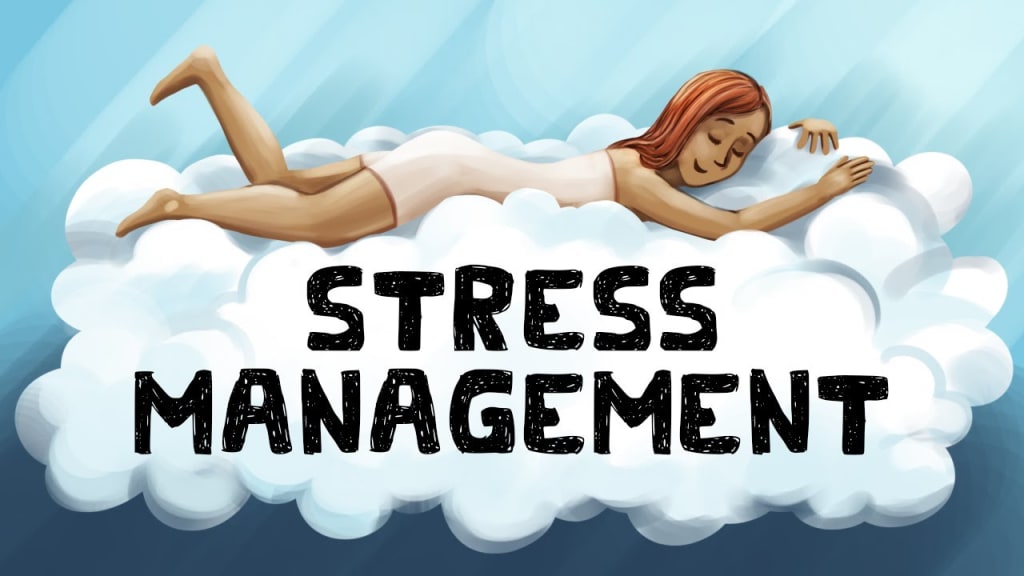Understanding and Managing Stress: Strategies for a Balanced Life
Exploring the Impact of Stress and Effective Techniques for Stress Reduction

One little piece of paper can have a remarkable effect.
Stress is a common phenomenon that affects many individuals. Whether it's due to work, relationships, or personal challenges, stress can take a toll on our overall well-being. However, understanding stress and its impact can help us better manage and cope with it. In this article, we will explore the concept of stress, its physiological effects, and effective strategies to reduce and control stress levels.
The Physiology of Stress
When faced with a stressful situation, our bodies respond by triggering a series of physiological changes. This response, often referred to as the fight-or-flight response, is an innate survival mechanism designed to protect us from immediate danger. During this response, the body releases stress hormones, such as adrenaline and cortisol, which prepare us to either confront the threat or flee from it.
The fight-or-flight response manifests through various physical changes. Our heart rate increases, pumping blood more rapidly to supply oxygen and nutrients to the muscles. Glucose, a primary energy source, is released to provide a quick burst of energy. Additionally, our attention becomes intensely focused, enhancing our ability to respond to the situation effectively.
Chronic Stress in the Modern World
While the fight-or-flight response is crucial in acute situations, it is not designed to be sustained over long periods. Unfortunately, in the modern world, many individuals experience chronic stress, which persists far beyond the immediate threat. Continuous exposure to stressors can have detrimental effects on both our physical and mental well-being.
Chronic stress keeps our brain and body in a heightened state of alertness, impairing our ability to think clearly, learn, and remember information. Prolonged stress can lead to a range of health issues, including high blood pressure, weakened immune system, and mental health disorders like anxiety and depression. It is essential to recognize the long-term implications of chronic stress and take proactive measures to manage it effectively.
Coping with Stress
Fortunately, there are several strategies to counteract the effects of stress and reduce its impact on our lives. One effective technique is deep breathing. Deep breaths activate the body's relaxation response, slowing down the heart rate, reducing blood pressure, and promoting a sense of calm. Taking a few moments throughout the day to engage in deep breathing exercises can help alleviate stress and restore balance.
Engaging in regular exercise is another powerful tool in stress management. Exercise releases endorphins, the body's natural mood-enhancing chemicals, which promote a sense of well-being and reduce stress levels. Whether it's a brisk walk, a yoga session, or a full workout, physical activity allows us to release pent-up energy and improve our overall resilience to stress.
Taking Control of Stress
In order to effectively manage stress, it is crucial to take control of the situation. This involves assessing the stressor, understanding its impact, and developing strategies to tackle it head-on. By breaking down the problem into smaller, manageable tasks, we can regain a sense of control and reduce feelings of overwhelm.
Furthermore, seeking support from others is essential in dealing with stress. Talking to a trusted friend, family member, or therapist can provide valuable insights, perspective, and emotional support. Socializing and sharing laughter with loved ones not only distracts us from stress but also promotes the release of feel-good hormones, fostering a sense of connection and well-being.
Connecting with Nature
Nature has a remarkable ability to calm and restore our minds. Whether it's spending time in a lush green park or immersing ourselves in the grandeur of a natural landscape, connecting with nature can significantly reduce stress levels. Research suggests that spending time in nature lowers blood pressure, reduces stress hormones, and improves mood and cognitive function. Incorporating nature into our daily lives, even in small ways like caring for indoor plants or taking short walks outdoors, can have profound effects on our well-being.
Diverting the Mind from Worry
Worrying thoughts can exacerbate stress levels and hinder our ability to relax. Engaging in activities that divert the mind from worry can be highly beneficial. Pursuing hobbies, engaging in creative outlets, or immersing ourselves in challenging tasks can redirect our focus and provide a sense of purpose and accomplishment. By replacing worry with productive or enjoyable activities, we can break free from the cycle of stress and regain control over our thoughts and emotions.
Conclusion
Stress is a prevalent and often overwhelming aspect of modern life. However, by understanding its physiology and implementing effective coping strategies, we can mitigate its negative effects. Deep breathing, regular exercise, taking control of stressors, seeking social support, connecting with nature, and diverting the mind from worry are powerful tools in reducing and managing stress. Remember, stress is a natural response, but we have the ability to control its impact on our lives and well-being.
FAQs
Q1: How long does it take for deep breathing to reduce stress?
Deep breathing exercises can have an immediate calming effect on the body and mind. Spending just a few minutes engaged in deep breathing can help reduce stress levels and promote relaxation.
Q2: Can exercise alone alleviate chronic stress?
While exercise plays a crucial role in stress management, it is not a standalone solution for chronic stress. A holistic approach that combines various stress-reducing techniques, including exercise, is typically more effective in managing chronic stress.
Q3: Is stress always harmful to the body?
While acute stress can be beneficial in certain situations, chronic and prolonged stress can have detrimental effects on the body and mind. It is important to identify and address chronic stress to prevent its negative impact on overall health.
Q4: How can socializing help in reducing stress?
Socializing with friends, family, or support groups provides an outlet for emotional expression, fosters a sense of belonging, and can promote laughter and relaxation. Sharing experiences and support with others can help alleviate stress and improve overall well-being.
Q5: What are some examples of activities that can divert the mind from worry?
Engaging in hobbies such as painting, playing a musical instrument, gardening, or practicing mindfulness can divert the mind from worry. Additionally, immersing oneself in challenging tasks, such as puzzles or learning a new skill, can provide a sense of focus and accomplishment, reducing stress levels.






Comments
There are no comments for this story
Be the first to respond and start the conversation.